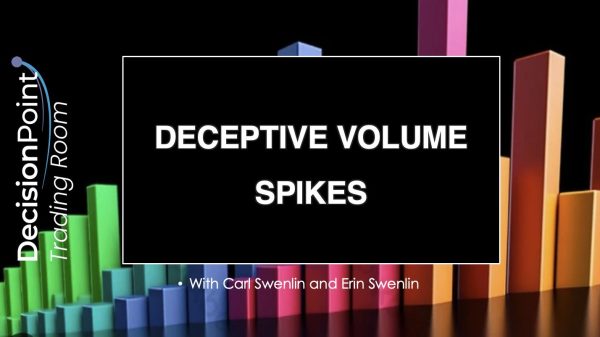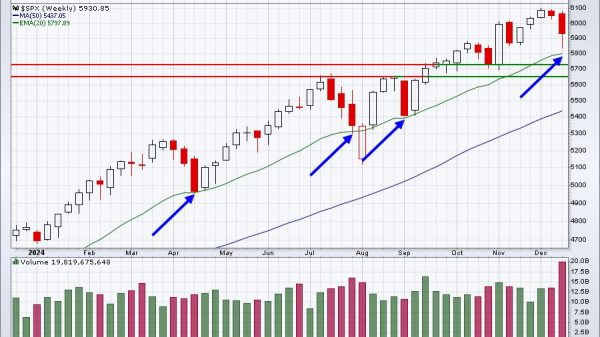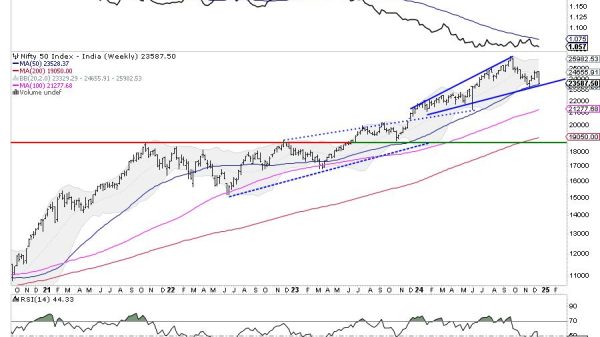The International Monetary Fund (IMF) has warned about the optimistic estimates for 2023, stating that it will likely be a much more difficult year than 2022.
Why would that be? Most strategists and commentators are cheering the recent decline in price inflation as a good signal of recovery. However, there is much more to the outlook than just a moderate decline in price inflation rates.
Price inflation is accumulative, and the estimates for 2023 and 2024 still show a very elevated level of core and headline inflation in most economies. The longer it remains this way, the worse the economic outcome. Citizens have been living on savings and borrowing to maintain current levels of real spending. But this cannot last for many years.
Politicians all over the world are trying to convince us that an annual inflation rate of 5 percent is a success, when it is a calamity.
In the current estimates, US citizens will continue to lose purchasing power. According to the Bureau of Labor Statistics, from November 2021 to November 2022, real average hourly earnings decreased 1.2 percent, seasonally adjusted. However, these bad figures are nowhere as bad as those of the euro area. In the euro area, wages and salaries per hour worked increased by 2.1 percent in nominal terms in the third quarter of 2022, which means a staggering decline in real terms of 7.1 percent.
The outlook for 2023 is widespread impoverishment while governments continue to spend and raise taxes, which means an even worse destruction of real disposable income.
What is happening in the so-called recovery from the pandemic is nothing else but a global destruction of the middle class at an unprecedented speed.
The worst policies have been implemented and all have decimated real savings and wages. Money printing and tax hikes have not made the rich poorer and they have certainly not damaged the wealthy. The entire negative impact of the widespread increase in taxes has fallen, yet again, on the shoulders of the middle class.
Politicians always sell their interventionist measures with the promise that they will only hurt the rich, but it is you who pays. They know that the middle class is the one that depends on a wage and tries to save for the future. The ultrarich are also highly indebted and can navigate a period of rising taxes moving capital and looking for options to preserve wealth. Those that rely on a salary and a bank account are the ones that cannot escape the global policy of impoverishment.
We must remind of the obvious: Artificial money creation is never neutral. It negatively affects wages and savings in deposits and only benefits deficit-spending governments and the highly indebted. Rising taxes always hurts the middle class and makes it more difficult for those that are starting to make a better living through hard work to invest and save for the future.
Interventionism always says that every unit of government spending goes back to society and therefore it is positive. The concept makes no sense. Bloating bureaucracy and entitlement spending does not strengthen growth or productivity and becomes a massive transfer of wealth from the productive to the unproductive. One thing is to have a portion of the productive sector aimed at social issues and a completely different one is to put the “social” banner on any government spending and make the productive sector a cash machine for governments to tap into at any and every time.
When you buy the narrative that the government will give you free stuff by making the rich pay more you are opening the door for the government to consider you rich and take more from you.
When you demand more government, this is what you get. An extractive and confiscatory view that always blames those who invest and create jobs for the problems yet creates a larger bureaucracy to administer the so-called benefits you never get.
The interventionist narrative is to try to tell you that everything and anything is to blame for inflation except the only thing that makes all prices rise in unison: Printing money well above demand.
Inflation at an annual rate of 5 percent is not a positive and certainly not falling prices. Inflation is accumulative, and what it means is we are becoming poorer faster.
























